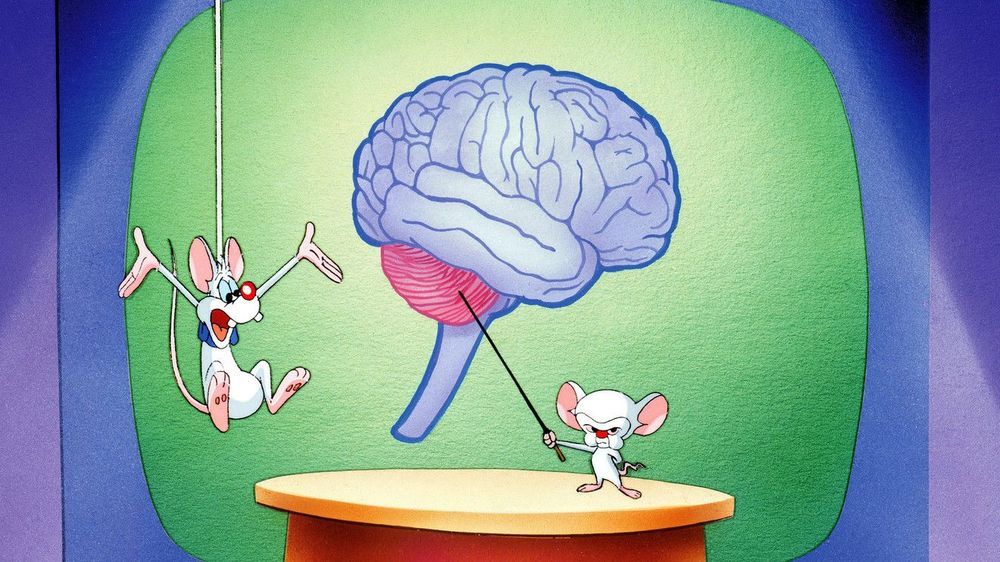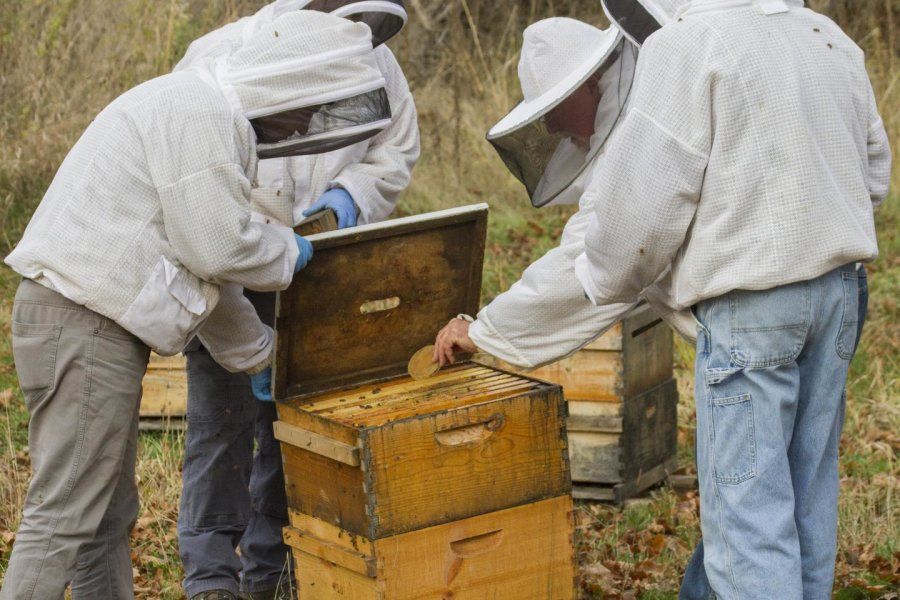Archive for the ‘health’ category: Page 331
Feb 23, 2019
Solar Powered E-Skin for Prosthetic Limbs
Posted by Gerard Bain in categories: biotech/medical, cyborgs, health, sustainability, wearables

Recently University of Glasgow developed a Graphene based E-Skin for prosthetic limbs. The research started with making a prosthetic arm that could sense even the minutest of pressure for gripping soft objects. It eventually yielded a prosthetic limb that was also self powering.
This was because of the development of Graphene based supercapacitors.
Continue reading “Solar Powered E-Skin for Prosthetic Limbs” »
Feb 23, 2019
New ‘interspecies communication’ strategy between gut bacteria and mammalian hosts uncovered
Posted by Xavier Rosseel in categories: biotech/medical, health, neuroscience
A study published today in Cell describes a form of “interspecies communication” in which bacteria secrete a specific molecule — nitric oxide — that allows them to communicate with and control their hosts’ DNA, and suggests that the conversation between the two may broadly influence human health.
The researchers out of Case Western Reserve University School of Medicine, University Hospitals Cleveland Medical Center, and Harvard Medical School tracked nitric oxide secreted by gut bacteria inside tiny worms (C. elegans, a common mammalian laboratory model). Nitric oxide secreted by gut bacteria attached to thousands of host proteins, completely changing a worm’s ability to regulate its own gene expression.
The study is the first to show gut bacteria can tap into nitric oxide networks ubiquitous in mammals, including humans. Nitric oxide attaches to human proteins in a carefully regulated manner — a process known as S-nitrosylation — and disruptions are broadly implicated in diseases such as Alzheimer’s, Parkinson’s, asthma, diabetes, heart disease, and cancer.
Feb 22, 2019
A New Treatment Can Relieve Food Allergies, But Few Doctors Offer It
Posted by James Christian Smith in categories: biotech/medical, food, health
Because there’s not yet an FDA-approved version of this treatment, most medical providers don’t yet offer it. So most patients can get it only by enrolling in research studies, of which there have been dozens in recent years.
Patients Find Relief For Food Allergies In Oral Immunotherapy Treatment : Shots — Health News Many parents of kids with life-threatening food allergies live with fear, EpiPen in hand. Some are trying oral immunotherapy, a treatment that can help patients build tolerance to foods like peanuts.
Feb 21, 2019
Goodyear’s “living” car tyre converts carbon dioxide into oxygen
Posted by Quinn Sena in categories: 3D printing, health, transportation
This 3D-printed concept wheel by tyre manufacturer Goodyear uses living moss to absorb moisture from the road, before converting it into oxygen through photosynthesis.
The Oxygene tyre was revealed at this year’s Geneva Motor Show that officially kicked off yesterday, 8 March 2018.
The concept is a response to research conducted by the World Health Organisation (WHO) that revealed more than 80 per cent of people who live in urban areas are exposed to air quality levels deemed to be unsafe.
Continue reading “Goodyear’s ‘living’ car tyre converts carbon dioxide into oxygen” »
Feb 21, 2019
Israeli team develops way to find genetic flaws in fetus at 11 weeks
Posted by James Christian Smith in categories: biotech/medical, computing, genetics, health, information science
Researchers at Tel Aviv University say they have developed a new, noninvasive method of discovering genetic disorders that can let parents find out the health of their fetus as early as 11 weeks into pregnancy.
A simple blood test lets doctors diagnose genetic disorders in fetuses early in pregnancy by sequencing small amounts of DNA in the mother’s and the father’s blood. A computer algorithm developed by the researchers analyzes the results of the sequencing and then produces a “map” of the fetal genome, predicting mutations with 99 percent or better accuracy, depending on the mutation type, the researchers said in a study published Wednesday in Genome Research.
The algorithm is able to distinguish between the genetic material of the parents and that of the fetus, said Prof. Noam Shomron of Tel Aviv University’s Sackler School of Medicine led the research, in a phone interview with The Times of Israel.
Continue reading “Israeli team develops way to find genetic flaws in fetus at 11 weeks” »
Feb 20, 2019
Your brain needs a fitness plan. Here’s how to keep it in shape
Posted by Genevieve Klien in categories: biotech/medical, food, health, neuroscience
This article is reprinted by permission from NextAvenue.org.
The basics of heart health have been drilled into our brains: Eat less saturated fat. Keep moving. Know your “numbers” for cholesterol, blood pressure and BMI.
But what about that brain itself? Although life expectancy has more than doubled since 1900, our “mindspan” — how long we stay cognitively healthy — hasn’t kept pace.
Continue reading “Your brain needs a fitness plan. Here’s how to keep it in shape” »
Feb 19, 2019
Explainer: What is quantum communication?
Posted by Klaus Baldauf in categories: business, cybercrime/malcode, health, quantum physics
Barely a week goes by without reports of some new mega-hack that’s exposed huge amounts of sensitive information, from people’s credit card details and health records to companies’ valuable intellectual property. The threat posed by cyberattacks is forcing governments, militaries, and businesses to explore more secure ways of transmitting information.
Feb 19, 2019
Fungus provides powerful medicine in fighting honey bee viruses
Posted by Quinn Sena in categories: biotech/medical, food, health, security
In field trials, colonies fed mycelium extract from amadou and reishi fungi showed a 79-fold reduction in deformed wing virus and a 45,000-fold reduction in Lake Sinai virus compared to control colonies.
Though it’s in the early stages of development, the researchers see great potential in this research.
“Our greatest hope is that these extracts have such an impact on viruses that they may help varroa mites become an annoyance for bees, rather than causing huge devastation,” said Steve Sheppard, a WSU entomology professor and one of the paper’s authors. “We’re excited to see where this research leads us. Time is running out for bee populations and the safety and security of the world’s food supply hinges on our ability to find means to improve pollinator health.”
Feb 19, 2019
Studying evolution to banish ageing — a new frontier in gerontological drug development
Posted by Ira S. Pastor in categories: aging, bioengineering, biological, biotech/medical, DNA, evolution, futurism, genetics, health, life extension
















